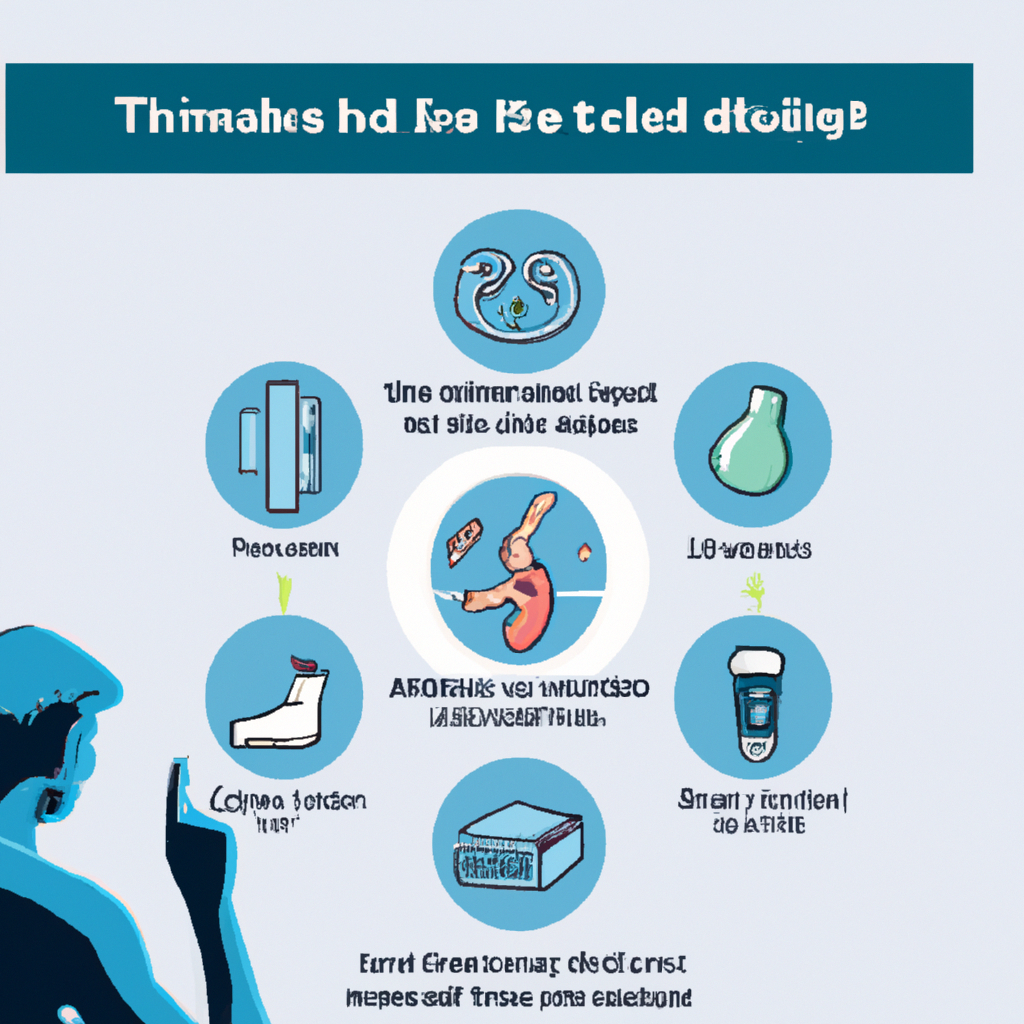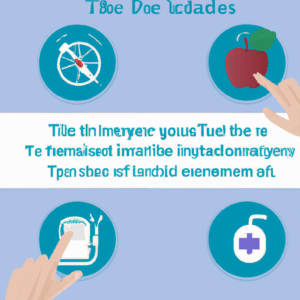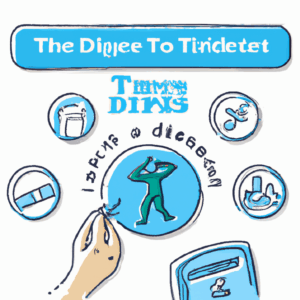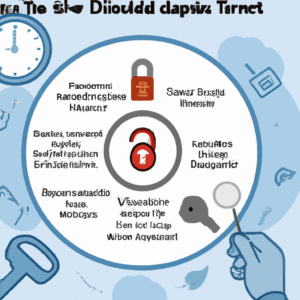Introduction: Context and Importance
Type 1 diabetes is a chronic condition that affects millions of people worldwide. Unlike type 2 diabetes, which is often associated with lifestyle factors, type 1 diabetes is an autoimmune disorder where the pancreas produces little to no insulin. This condition requires lifelong management and can significantly impact a person’s quality of life. Understanding type 1 diabetes is crucial not only for those directly affected but also for family members, healthcare providers, and society at large. By spreading awareness and accurate information, we can foster a supportive environment that empowers individuals to manage their condition effectively and thrive despite the challenges.
In this comprehensive guide, we will delve into the medical aspects of type 1 diabetes, share patient stories, offer practical daily life tips, and discuss expert opinions. We will also address common misconceptions to provide a well-rounded understanding of living well with type 1 diabetes. Whether you are newly diagnosed, a caregiver, or someone seeking to learn more, this guide aims to equip you with the knowledge and tools needed to navigate life with type 1 diabetes.
Medical Overview
Type 1 diabetes, previously known as juvenile diabetes, usually manifests in childhood or adolescence, although it can occur at any age. It is characterized by the immune system’s attack on the insulin-producing beta cells in the pancreas, leading to an insulin deficiency. Insulin is a hormone crucial for regulating blood glucose levels. Without adequate insulin, glucose remains in the bloodstream, leading to high blood sugar levels, which can cause serious health complications over time.
Diagnosing type 1 diabetes involves several blood tests, including the fasting blood sugar test, hemoglobin A1c test, and random blood sugar test. Once diagnosed, the primary treatment involves insulin therapy, which can be administered through injections or an insulin pump. Continuous glucose monitoring (CGM) systems have become increasingly popular, offering real-time blood sugar readings and helping individuals make informed decisions about their insulin needs.
While there is currently no cure for type 1 diabetes, advancements in medical technology and research are continually improving management strategies. The ultimate goal of treatment is to maintain blood sugar levels within a target range to prevent complications such as neuropathy, nephropathy, retinopathy, and cardiovascular diseases. Regular check-ups with healthcare providers, including endocrinologists and diabetes educators, play a vital role in effective disease management.
Patient Stories
Meet Sarah, a 16-year-old high school student diagnosed with type 1 diabetes at the age of 10. Initially, Sarah and her family were overwhelmed by the diagnosis. The daily routine of insulin injections, blood sugar monitoring, and dietary adjustments seemed daunting. However, with the support of her healthcare team and participation in a diabetes education program, Sarah learned to manage her condition effectively. Today, she excels in academics and athletics, proving that type 1 diabetes does not define her capabilities or future.
Then there is John, a 35-year-old software engineer who was diagnosed with type 1 diabetes in his late twenties. For John, the biggest challenge was integrating diabetes management into his busy work schedule. Through trial and error, he discovered practical ways to incorporate healthy eating and regular exercise into his routine. John’s story highlights the importance of flexibility and creativity in managing type 1 diabetes alongside a demanding career.
Lastly, consider Emma, a 60-year-old retiree who has lived with type 1 diabetes for over four decades. Emma emphasizes the significance of community support and staying informed about the latest advancements in diabetes care. She participates in local support groups and online forums, where she shares her experiences and learns from others. Emma’s long-term success in managing her condition demonstrates the power of resilience and the positive impact of a strong support network.
Practical Tips for Daily Life
Living with type 1 diabetes requires careful planning and a proactive approach to daily life. Here are some practical tips to help manage the condition effectively:
1. **Establish a Routine:** Consistency is key in managing type 1 diabetes. Establish a routine for checking blood sugar levels, taking insulin, and eating meals. This helps prevent fluctuations in blood sugar levels and makes daily management more predictable.
2. **Adopt a Balanced Diet:** Focus on a balanced diet that includes a variety of nutrients. Carbohydrate counting can be particularly useful in managing blood sugar levels. Work with a dietitian to create a meal plan that suits your lifestyle and preferences.
3. **Stay Active:** Regular physical activity helps improve insulin sensitivity and overall health. Find an exercise routine that you enjoy, whether it’s walking, cycling, yoga, or swimming. Always monitor your blood sugar levels before and after exercise.
4. **Use Technology:** Embrace technology such as continuous glucose monitors and insulin pumps. These tools provide valuable data and can simplify diabetes management. Keep abreast of new technological advancements that might further aid in managing your condition.
5. **Stress Management:** Stress can impact blood sugar levels, so it’s important to incorporate stress-reducing practices into your daily life. Techniques such as meditation, deep breathing, and mindfulness can be beneficial.
6. **Educate and Advocate:** Educate yourself about type 1 diabetes and advocate for your needs. Don’t hesitate to ask questions during medical appointments and seek second opinions if necessary. Being informed empowers you to make the best decisions for your health.
Expert Opinions and Clinical Perspectives
Experts in the field of endocrinology and diabetes care emphasize that while type 1 diabetes is a challenging condition, it is manageable with the right approach. Dr. Lisa Thompson, an endocrinologist with over 20 years of experience, notes that individualized treatment plans are critical. “Each person’s experience with type 1 diabetes is unique, so treatment plans should be tailored to fit their specific needs and lifestyle,” she advises.
Clinical research continues to explore innovative treatments and potential cures for type 1 diabetes. Dr. Michael Lee, a leading researcher in diabetes technology, highlights the promise of artificial pancreas systems. “These systems automate insulin delivery based on real-time glucose readings, significantly reducing the burden of manual management for patients,” he explains.
Diabetes educators also play a crucial role in supporting patients. Emily Ross, a certified diabetes educator, stresses the importance of education in empowering patients. “When individuals understand how their body responds to different foods, activities, and stress, they can make better decisions and feel more in control,” she comments.
Collaboration among healthcare providers, patients, and researchers is vital to advancing care and improving outcomes for those with type 1 diabetes. By staying informed about the latest research and treatment options, individuals can continue to thrive despite the challenges posed by this condition.
Common Misconceptions and Correct Understanding
Type 1 diabetes is surrounded by numerous misconceptions that can lead to misunderstandings and stigma. One common misconception is that type 1 diabetes is caused by poor lifestyle choices. In reality, type 1 diabetes is an autoimmune disorder with no known prevention methods. It is not caused by diet or lack of exercise.
Another misconception is that individuals with type 1 diabetes cannot lead normal lives. While type 1 diabetes requires careful management, many people with the condition lead full and active lives. With the right support and resources, they can pursue their passions, excel in their careers, and enjoy personal relationships.
Some people mistakenly believe that insulin is a cure for type 1 diabetes. Insulin is a treatment that helps manage blood sugar levels, but it does not cure the underlying autoimmune disorder. Research is ongoing to find a cure, but in the meantime, effective management strategies are essential.
It’s also important to understand that type 1 diabetes affects individuals differently. Symptoms, management strategies, and responses to treatment can vary widely, underscoring the importance of personalized care. By challenging misconceptions and promoting accurate information, we can create a more understanding and supportive environment for those with type 1 diabetes.
Summary and Outlook
As we conclude this comprehensive guide, it’s clear that understanding type 1 diabetes involves a multi-faceted approach. From the medical overview and patient stories to practical tips and expert insights, each aspect plays a crucial role in managing the condition effectively. By debunking common misconceptions and fostering a supportive community, we can empower individuals with type 1 diabetes to live well and thrive.
Looking ahead, advancements in technology and research continue to offer hope for improved management and potential cures. As awareness grows and resources become more accessible, individuals with type 1 diabetes can look forward to a future where their condition is not a barrier but a part of their unique journey. Through education, advocacy, and innovation, we can ensure that those living with type 1 diabetes receive the support they need to lead fulfilling and healthy lives.
In summary, living with type 1 diabetes requires resilience, education, and a proactive approach to health management. With the right mindset and tools, individuals can navigate the challenges and embrace the opportunities that come with managing this condition. As research progresses and societal understanding deepens, the outlook for those with type 1 diabetes continues to brighten.







